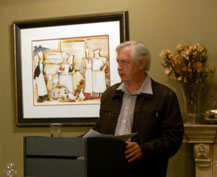Latest News Archive
Please select Category, Year, and then Month to display items
26 July 2022
|
Story Bulelwa Moikwatlhai
|
Photo Supplied
 Experiencing the UFS in person for the first time are from the left: Sandor Potjer (VU Amsterdam), Bulelwa Moikwatlhai (UFS OIA), Ricarda Kochems (Bremen University, Germany), Froukje Pronk (VU Amsterdam) and Matome Mokoena (UFS OIA)
Experiencing the UFS in person for the first time are from the left: Sandor Potjer (VU Amsterdam), Bulelwa Moikwatlhai (UFS OIA), Ricarda Kochems (Bremen University, Germany), Froukje Pronk (VU Amsterdam) and Matome Mokoena (UFS OIA)
As the UFS COVID-19 Regulations and Required Vaccination Policy has been lifted with immediate effect – allowing 100% capacity of both students and staff members and a fully operational campus – the
Office for International Affairs welcomes its first physical exchange cohort after two years. The cohort of students hail from the various international partners of the UFS, namely the
University of Bremen in Germany, the Vrije Universiteit Amsterdam, and Sciences PO Bordeaux in France. The students will be hosted in the UFS faculties of the Humanities, Economic and Management Sciences, and Natural and Agricultural Sciences, respectively.
These students have been paired with
Umoja Buddy Programme ambassadors to help ensure their smooth transition and integration into student life at the UFS. Furthermore, the students received an invitation from the President of the
International Student Association (ISA), Courtney Madziwa, to join their association, thus exposing them to students from other countries to learn about the various cultures.
On 18 July, the Office for International Affairs (OIA) arranged a hybrid orientation programme for the exchange students, including those students who have not yet arrived on the Bloemfontein Campus. The students took part in an icebreaker activity, where they had the opportunity to learn from and teach other participants about their home countries. Dr Cornelius Hagenmeier, Director of the OIA, welcomed the exchange students to the Bloemfontein Campus, and expressed excitement to have physical exchanges again. Furthermore, the guest presenters ranged from student leadership, staff members, and service providers.
The presentations were practical, demonstrating, among others, how to create a password on the institutional website – presented by Mr Molemo Mohapi from UFS ICT. The presentation on how to fully utilise Blackboard was facilitated by Ms Vuthihi Mudau from the UFS CTL division. We take the safety of all our students seriously, so Ms Elise Oberholzer from the UFS Protection Services has given the students some tips on how to safeguard themselves.
Afrikaans place names were not only given by Afrikaner people, says professor.
2012-09-25
 |
Prof. Peter Raper delivering his lecture on South African place names.
25 September 2012 |
Prof. Peter Raper, honorary professor at the Department of Linguistics and Language Practice, delivered a public lecture in Clarens earlier this month. The theme of the lecture was “From Stone Age to GPS: The fourth edition of the South African Place Names Dictionary”.
Prof. Raper shared the historical development of the project as well as the challenges and other interesting observations associated with the topic. He elaborated on the dramatic change in the focus of his research on place names in South Africa.
It was previously assumed that all of the Afrikaans place names were given by the Afrikaner people and that changing these place names was consistent with the mandate of the South African Geographical Names Council (SAGNC) to transform place names. Prof. Raper said more in-depth research revealed that a significant number of place names are actually translations of original San names – into Afrikaans, Khoi and the Bantu languages. He told the audience that given the constitutional stipulation that no cultural group’s heritage may be removed, this discovery calls into the question the modus operandi of the SAGNC.
Prof. Raper’s lecture was part of the conference programme of the Third International MIDP IV Symposium that took place on the Qwaqwa campus. The MIDP (Multilingual Information Development Programme) is a project sponsored by the Province of Antwerp. The theme for this year’s symposium was “Multilingualism for Empowerment” and was presented in collaboration with the University of Antwerp.